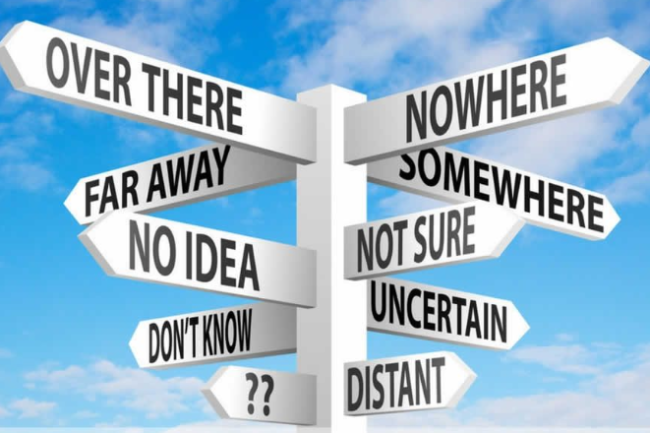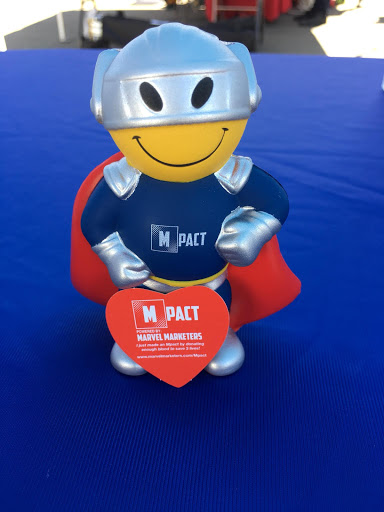Back in 1996, Bill Gates was the first to declare that “Content is King.” Since then, the quote has been used ad nauseam by marketers both online and off, but saturation aside, this statement is completely correct. Like Gates said, “One of the exciting things about the Internet is that anyone with a PC and a modem can publish whatever content they can create.” And guess what? No company is too small to participate.
That doesn’t mean it’s easy, though. There are a few things that can have the same effect on your content marketing efforts that Godzilla had on Tokyo—but many organizations overlook them. To avoid total destruction, be on the lookout for these 4 threats:
1. Not enough bandwidth

Creating a successful strategy and insightful content takes time. This isn’t something that you can carry out on the side of all your other responsibilities. Too many times, I’ve seen companies designate an employee to “do content.” It doesn’t matter that this person doesn’t have any actual content background or expertise. It’s just slapping together some words, right?!
Not so much.
Adding to the problem, this person also has their own full-time job, so “doing content” ends up on the backburner. Assuming any content actually gets created in a timely manner, it often doesn’t align with the strategy as a whole (or no one has even taken the time to create a strategy!) or the company’s brand voice and vision.
2. Not having an actual strategy

Many organizations THINK they have a content strategy, but they actually don’t. Sending out an email when you happen to remember doesn’t count as a content strategy. Neither does updating your blog randomly. That YouTube channel that collects dust for six months at a time doesn’t count as a content strategy either. Like any other marketing strategy, there’s a lot of consideration that goes into a good content strategy. Every piece you publish should work towards an ultimate objective, and every word should be carefully crafted to align with your audience’s specific needs and wants at their precise position in the marketing funnel.
Go through the content you’ve created recently. Does each piece leave a particular footprint on the buyer’s journey? Can you explain the reasoning behind each piece in a single sentence? A good content strategy should be like an arrow pointing towards a target, not a meandering walk through the woods.
3. Not keeping up with the times

A successful content strategy in today’s landscape doesn’t just mean putting pen to paper (or fingers to keyboard). Instead, it means taking full advantage of today’s technology and tools. Here are a few things you can implement right now:
- Study your website’s analytics and see which topics resonate best with your audience. If one particular blog post gets a ton of page views, find new angles of that topic to cover in future blog posts.
- You can also use analytics to determine which content formats your audience prefers. Maybe they’ll spend six minutes watching a video but only 45 seconds reading a blog post. Just like that, you know to increase your video content.
- Use UTM parameters to see which content is leading to the most engagement and conversions.
- Use your marketing automation platform to segment your audience and split-test different subject lines and email copy.
- Use your marketing automation platform to track how much time leads spend interacting with your content, and once they hit a pre-determined threshold (ex: 30 seconds, a minute, five minutes), add to their lead score.
- Use a social media platform like Buffer or Oktopost to determine which posts are getting the most engagement.
4. Creating bad content

Most people think content creation is “easy”, but the truth is, it’s a skill that combines natural ability with the right development. Not everyone can do it—just like not everyone can hit a 100-mph fastball.
Here’s a prime example of what I’m talking about:
A few months ago, I received an email that was clearly part of a re-engagement strategy. I don’t remember it because it inspired me to reconnect with the company—it actually did just the opposite. That’s because the subject line was “What do you want?”
After I picked my jaw up off the floor, I realized that the company was trying to find out what topics I wanted to read about and what they could do on their end to serve me better. But the way they constructed their message was all wrong. Let’s face it, that subject line is aggressive and bitter, and, unfortunately, most subject lines only get a quick glance. I took a minute to think about the company’s intentions behind it, but I’m certain that most other recipients took one look at that subject line, thought the company was being hostile, and hit “Delete.”
This company would have been better off not sending anything than sending something this memorably bad.
Bottom line—content is the King of marketing and lots of organizations take it for granted. You can have the prettiest website in the world, the best-segmented audience, and the world’s most perfect product, but if you can’t communicate properly, none of it matters.




